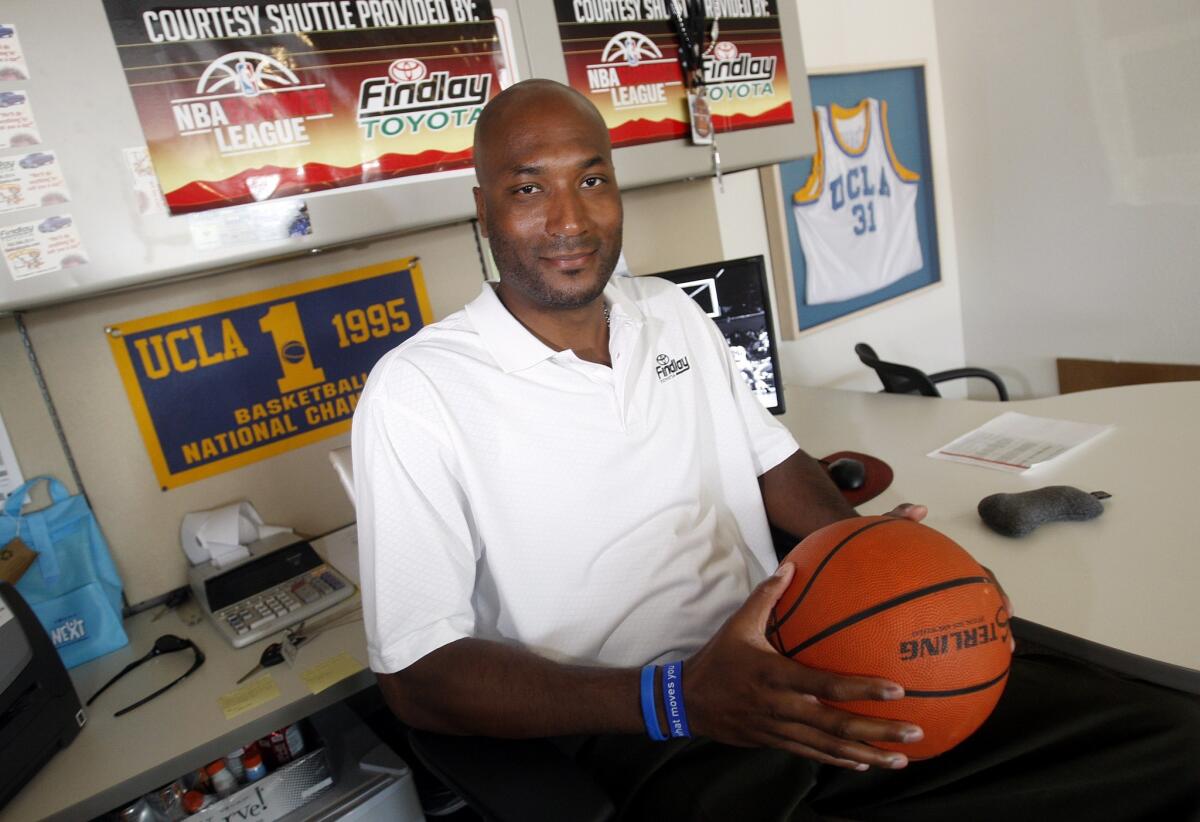Appeals court struggles to decide whether NCAA athletes should be paid

- Share via
REPORTING FROM SAN FRANCISCO — A federal appeals court struggled Tuesday over whether the NCAA could be required to pay college athletes thousands of dollars a year.
During an hourlong hearing, a three-judge panel of the U.S. 9th Circuit Court of Appeals considered a judge’s ruling that the NCAA either pay Division I football and basketball players the full cost of attending college or put $5,000 a year in a trust fund for them.
Judge Gordon Quist, a district judge from Michigan filling in on the 9th Circuit, said the NCAA had “very effectively” argued that such a requirement would usurp its functions.
“It is not a federal judge’s job to run the NCAA,” Quist said.
Judge Jay Bybee said that requiring colleges to pay the full cost of an athlete’s education — not just tuition and room and board — seemed “reasonable.”
But the alternative requirement that athletes be given money in a trust account appeared to “cross some theoretical line about pay for play,” Bybee said.
Chief Judge Sidney Thomas said he was troubled that the case did not appear to involve athletes’ rights to earnings from video games. Rules prohibiting game makers from using athletes’ names and likeness had not been challenged, Thomas said.
“There is a huge potential market out there” that might not even by covered by the case, Thomas said.
The judges asked relatively few question during the hearing, making it difficult to know their leanings.
Seth Waxman, an NCAA lawyer, told the judges that the district court decision was wrong on a variety of points.
“Until the district court below, no court had ever found that the antitrust laws condemn a rule whose purpose and design is to protect amateurism,” Waxman said.
Michael D. Hausfeld, representing the players, called the NCAA a “classic cartel.”
Thomas asked him to explain why the athletes’ names, likenesses and images have value in an antitrust case.
“Because there are commercial enterprises willing to pay for them, and the NCAA commercializes them,” Hausfeld said.
A ruling is not likely for months.
The case was brought by former UCLA basketball star Ed O’Bannon on behalf other players.
After a lengthy bench trial, U.S. District Judge Claudia Wilken decided that the NCAA’s refusal to share lucrative earnings from broadcasts, video games and other ventures amounted to exerting monopoly powers.
Dozens of law professors and the Screen Actors Guild have sided with the players. The television industry filed a friend of the court brief on behalf of the NCAA.
Follow Maura Dolan on Twitter @mauradolan
More to Read
Go beyond the scoreboard
Get the latest on L.A.'s teams in the daily Sports Report newsletter.
You may occasionally receive promotional content from the Los Angeles Times.











